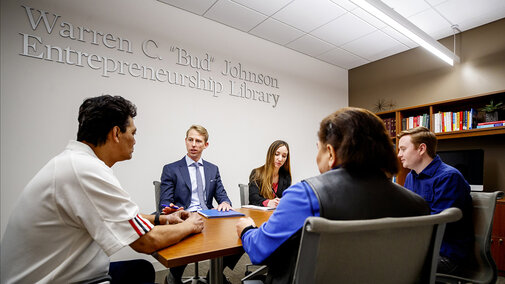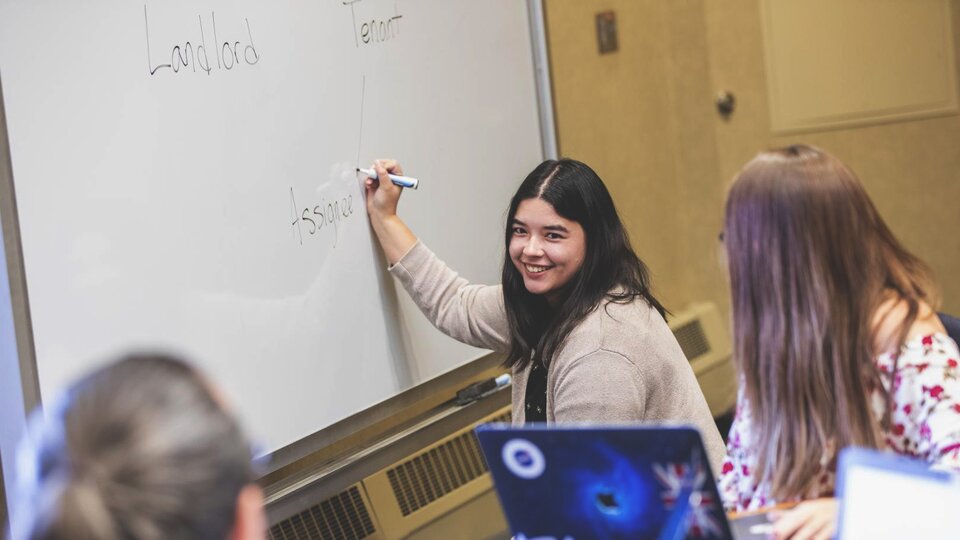An effective leader moves a person, a group, an organization, or an idea forward. They create a vision and share that vision in a manner that inspires and influences others to act in a manner that will ultimately help realize it. Lawyers, at their very core, are leaders because at the most basic level they are asked to move people (clients, opposing counsel, judges, and juries) to act in a manner that results in the realization of a vision or outcome that the lawyer has identified as the best approach to the matter at hand.
In the business context, the CEO may be the one who ultimately envisions a future for their company; yet, it is general counsel who must develop a vision for how to achieve those goals within the confines of the law and with the best interests of the company and its stakeholders in mind and then convince the CEO that it is this the right path to take. These are just two very basic examples of ways in which lawyers lead, but they get to the essence of why every lawyer must prioritize developing their leadership acumen.
Lawyers are Leaders
- Why: Lawyers must be able to lead themselves and others to thrive in the profession.
- Program Benefits: Students enter the profession with the skills they need to lead in their work and in their communities.
- Goal: Every Nebraska Law graduate understands how to leverage their strengths and the strengths of others to successfully lead themselves and others to advance justice, solve problems, and serve with integrity.

First-Year Program Outcomes
At the conclusion of their first year of law school, students will:
- Have successfully established their foundational legal expertise.
- Have developed habits that support their physical and mental wellbeing.
- Know what they do best and understand how to leverage those strengths.
- Have developed an understanding of how to work with clients from diverse backgrounds and cultures.
Upper-Class Program Outcomes
At the conclusion of their legal education, Nebraska Law graduates will:
- Have acquired the legal expertise, analytical reasoning, and complex problem solving skills necessary for success in their professional lives.
- Have acquired influencing and advocacy skills.
- Have acquired the foundational knowledge and understanding necessary to exercise proper professional and ethical responsibilities, and to serve with integrity.
- Have acquired the foundational knowledge and understanding necessary to work successfully with clients from diverse backgrounds and cultures, and to collaborate successfully with other professions and professionals.
- Be prepared to serve their community.
Leadership of Self
A law student’s leadership journey begins with successfully leading themself through the 1L year. By developing academic and personal well-being practices, learning how to leverage their unique strengths, finding community, and learning how to view things through different perspectives, 1Ls are developing foundational knowledge and skills that will serve them throughout the entirety of their career.
Personal and Academic Wellbeing
- Attend Academic Success
- Meet with a faculty advisor
- Attend professor office hours
- Participate in study groups
- Become familiar with CAPS
- Develop a consistent exercise routine
- Maintain good nutrition
- Participate in a Mentor Program
Personal Strengths
- Complete the StrengthsFinder
- Attend a strengths coaching session
- Successfully complete Legal Analysis, Writing and Research
Finding Community
- Join a student organization
- Attend a Nebraska Law community-building event
- Register as a student member with the Nebraska State Bar Association
- Participate in a pro bono activity
Leadership of Others
Upper-level students build upon what they have learned during 1L and begin to practice what they have learned in addition to learning how to lead and influence others. This learning occurs through coursework as well as through real-world application in externships, clinics, and pro bono opportunities, as well as competitions and student organization leadership.
Influencing and Advocating
- Successfully complete Negotiations
- Successfully complete Client Counseling
- Successfully complete Advanced Legal Writing
- Successfully complete Mediation
- Successfully complete Trial Advocacy
- Successfully complete a clinical experience
- Participate in a competition
- Lead a student organization
- Participate in a Strengths advocacy training
- Participate in the 2L inclusive leadership advising program
- Participate in the Board Leadership Externship Program
- Complete an Externship
- Participate in a pro bono activity
Board Service Leadership Externship Program
- Second-year law students serve a one-year term in a non-voting seat on a nonprofit board of directors. They will learn how nonprofit organizations operate, the roles and responsibilities of board members, and the roles lawyers play in the leadership of communities and community organizations.
- The faculty supervisor will work in partnership with on-site supervisors (also board members) at the Child Advocacy Center, Food Bank of Lincoln, LUX Center for the Arts, Malone Center and Mourning Hope Grief Center to identify goals for the student extern.

